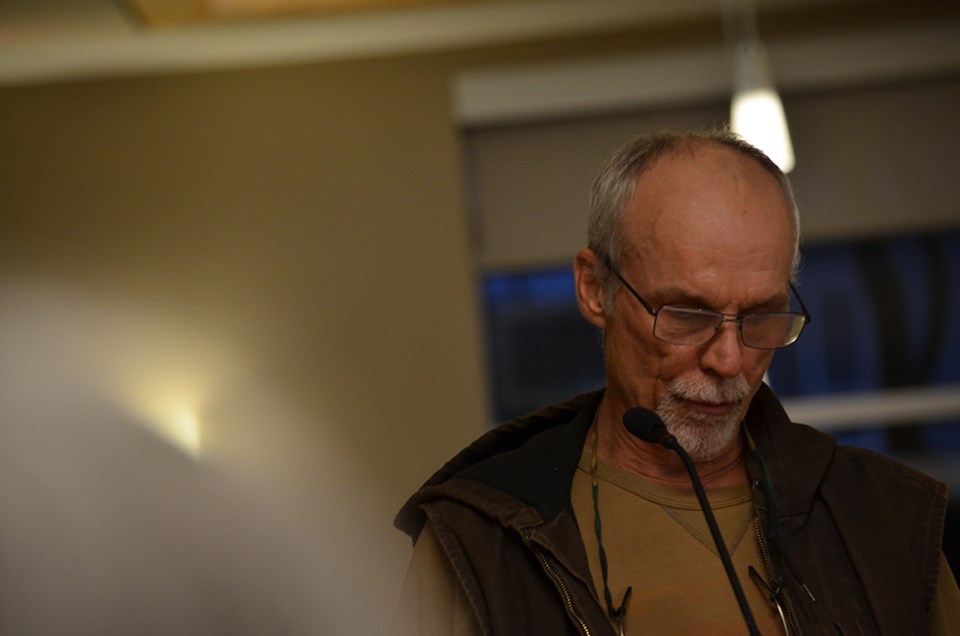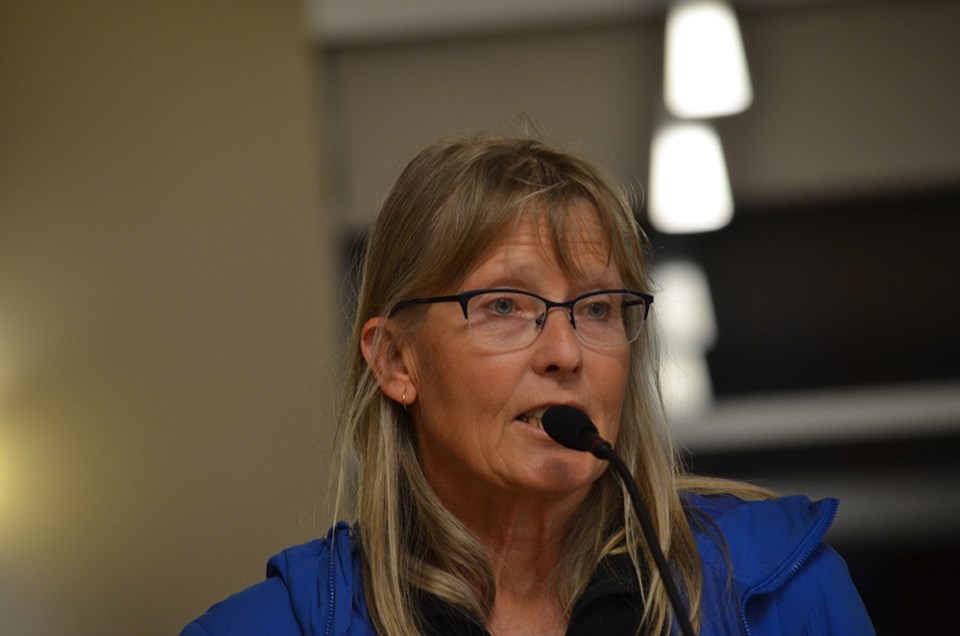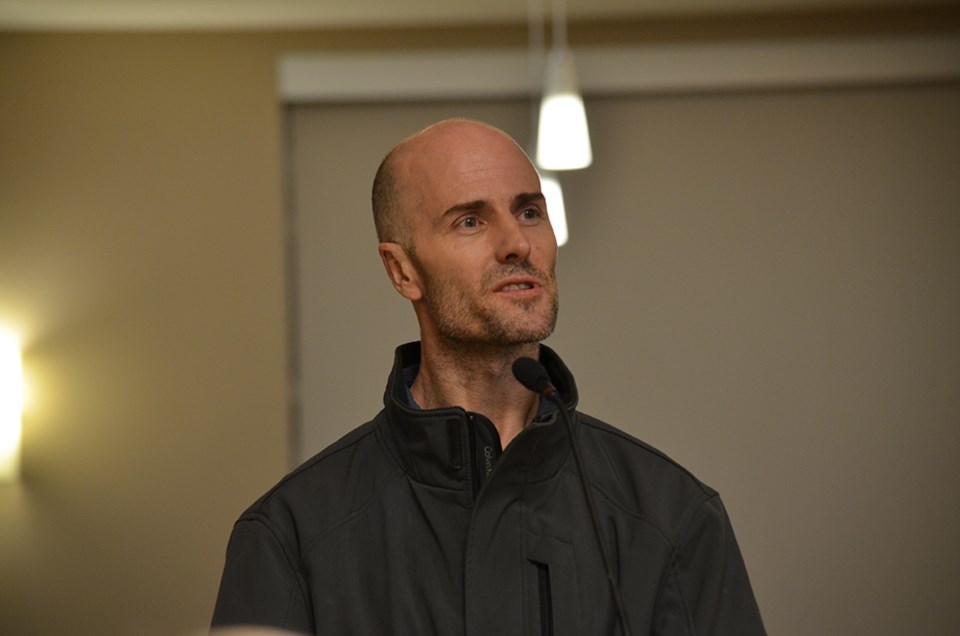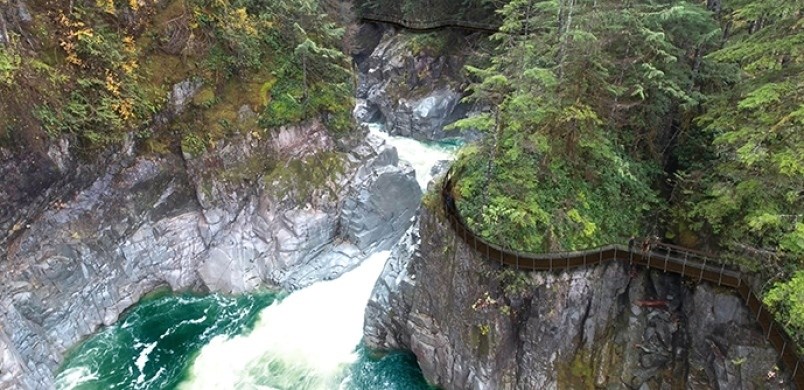A lengthy public hearing revealed a town thoroughly divided about a proposal for what could be its next major tourist attraction.
There was standing room only during the hearing for Squamish Canyon, which took place at the 55 Activity Centre on March 10 and stretched on for four hours. The development is proposing to rezone land currently classified as residential RS-1 and groundwater protection P-6 at the end of Mamquam River Forest Service Road by the Powerhouse Springs area.
In previous District reports, the groundwater protection area was described as ecological reserve and protection, but municipal staff told The Chief this was a mistake made due to a clerical error.
Should the rezoning go through, Squamish Canyon would bring 800 metres of elevated boardwalk and roughly 200 metres of canyon walkway. The proposal includes washrooms, a children’s play area, a concession stand and a small stage. During its second phase, two bridges would be added over the canyon as well as additional elevated boardwalks with lookout platforms.
A study predicts an average of 374 visitors per day, and 136,000 annual visitors by its third year.
Since its last appearance before council, the project’s allocated floor space has been reduced to 500 square metres, down from 2,000.
Shortly before the public hearing, opponents of the project rallied. A petition on Change.org was circulated a day before the public hearing, and gathered about 1,500 signatures by the time the hearing was in session.
Opponents listed environmental impacts, traffic, dust, noise and proximity to houses as problems.
Those who commented on the petition frequently mentioned that the area should be kept wild.

“This proposal, if successful, will quickly erode the relatively untouched lands by the Mamquam River, which will have an everlasting detrimental impact on not only the environment but also the families that chose to call this place home,” Philippa Clark, who started the petition, said at the hearing.
However, Robin Sherry, the proponent behind the project, dismissed the petition, saying that all the concerns laid out in that document have already been addressed in his proposal.
“I checked with the environmental consulting team that we have — we went through the entire list, and I don’t believe there’s one thing on there that actually holds much merit on a factual base,” said Sherry.
He said there is no validity to the petition.
Sherry had his supporters.

John Harvey of the Mamquam River Access Society, said the society supports the project.
“The project will secure the area from industrial use or otherwise from some inevitable housing development,” said Harvey. “Basically, he’s ultimately saving it from being lost as something else.”
This was a recurring theme made by Sherry and supporters of his project. Those in favour of Squamish Canyon said by taking tenure of the land, Sherry removed the province’s right to log the area. Without the project, they said, the province would eventually turn it into a cut block. Either that, or the currently RS-1 zoned land would be acquired by a developer keen to convert the area into a residential development.
Some also spoke highly of Sherry’s credentials as a rescuer, especially when others wondered if increased tourist traffic would lead to more accidents.

“We know Robin through Search and Rescue, and there have been some tough calls in that area Robin is involved operationally,” said Jacki Wilcox, who also is on the SAR team.“I think he’s very passionately committed to safety.”
Another big theme that emerged in the hearing was whether the land should stay public or become private.
Detractors asserted that the project would be privatizing and profiting off public land that up until now has been freely enjoyed by all.“It seems to me like it’s a public project,” said Robert Forsyth. “It should be something that the province does. It should be like the Chief, if that’s what they’re going to do, but it’s a private entity that’s going to be making a profit off a public facility and literally inconveniencing everybody else around.”

However, supporters said that Squamish Canyon would allow tourism — which would inevitably happen — to occur in a controlled manner and would minimize safety concerns and environmental impact.
So far, the project has passed two readings, and council is expected to deliberate third reading soon after taking into account the feedback received at this hearing.




